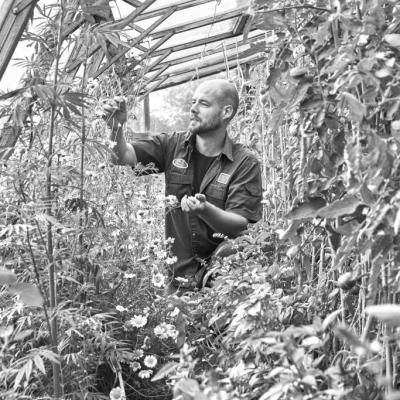
Building a sustainable food system in an ever-changing world
25 January 2023
My foot just through the ORC and Agricology door as Farm Engagement Officer, I started the year in a similar way to many farmers and growers, by going to the Oxford Real Farming Conference (ORFC). This was a first for me and delivered all that it promised and more. Here are some of my reflections...
After two years of being in an online format, the the world’s largest agroecological conference returned this year with a bang. The Shumei Taiko ensemble roused the audience with their rhythmical drumming during the opening plenary and paved the way for some powerfully worded statements from Oli Rodker (Landworkers Alliance,) Kath Dalmeny (Sustain) and Satish Kumar, with ORFC co-founder Ruth West setting the tone for the conference with the line “farms are ecosystems, not just factories for food ingredients.”
Bringing together leading thinkers and practitioners from the global sustainable food and farming movement, the conference centres (for those of you who aren't familiar with it) on how to build a resilient, equitable, and sustainable food system in an ever-changing world. Discussions looked at the challenges facing our food system today, with workshop sessions exploring innovative solutions for the future. The depth and breadth of the programme was truly something to behold; from discussions on the fertiliser crisis and workshops on meadow making, to sessions on nut production in the UK and climate-friendly sheep farming. All this was mixed in with a healthy amount of food, drink, music and dancing.
Some highlights for me included Iain Tolhurst speaking on peat-free alternatives and sharing his use of ‘peg’ plants as an affordable approach to moving away from module-based plant raising. There were inspiring stories shared around the successes and challenges of running farmer-to-farmer mentoring programmes from the good folk at Pasture for Life and the High Weald AONB farmer cluster. Chris Maughan from the Centre for Agroecology, Water and Resilience shared his work on using weeds as bioindicators - check out this great guide for farmers and growers wanting to undertake collaborative assessments of their soils as a way of learning about weed communities and soil health here. In the same session, Annie Landless gave an interesting overview on how farmers and growers can start monitoring the soils on their farms with help from the Soilmentor app.
The conference not only highlighted the need for dramatic changes in how we approach farming, but it drew together groups from across the farming spectrum. The overriding feel of the ORFC is one of people coming together, old friends and new, traditional agroecological farmers and those transitioning to more sustainable practices. Peer-to-peer learning is key to positive change within the farming community and to building a resilient, equitable and sustainable farming system, and the conference is a shining example of this. With over 70 sessions taking place, there was an exceptionally diverse range of topics to learn from, which goes some way to explaining why the conference goes from strength to strength. But most importantly, I am sure it's because the knowledge shared will already be being put to use on farms and fields across the UK. Keep an eye out on Agricology as we look to share some of the learning experiences and how they have translated in to action.
Matt Smee writes of himself "I have recently joined the team at the Organic Research Centre and Agricology as Farm Engagement Officer after a long stint working as an organic grower based in the northwest, where over the past 12 years I've been building and running market gardens. During this time I also co-founded the organic food company 9 Meals from Anarchy, which is still going strong. Prior to this I worked in Burma running community development projects with hill tribe groups in the east of the country, and worked with exiled pro-democracy groups in Thailand. I have joined the team to help grow the reach of Agricology’s work, to bring more farmers in to the conversation around regenerative and sustainable farming practices, and connect up with individuals and organisations who are doing pioneering work in these areas."


